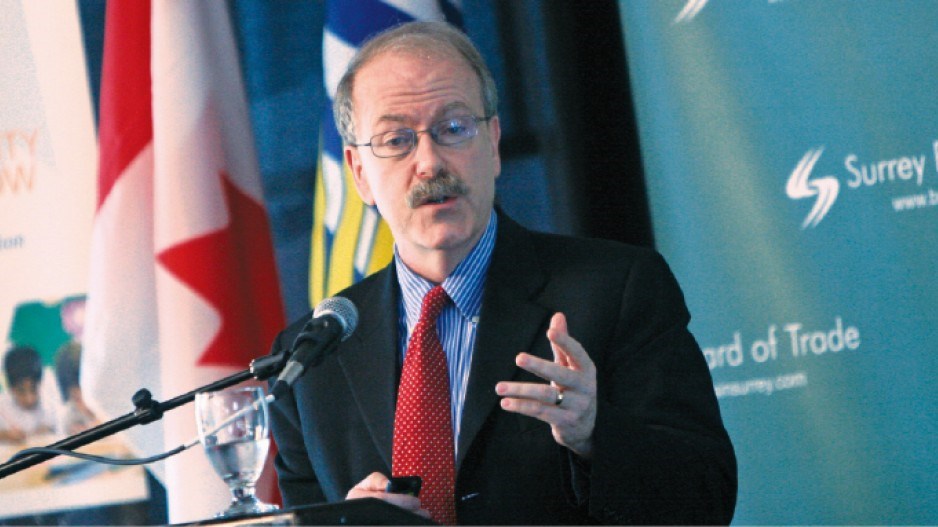BC’s economy will continue to muddle along for at least 2013’s first half and well into the lunar Year of the Snake.
At the Surrey Board of Trade’s annual forecast luncheon, Jock Finlayson, executive vice-president of the Business Council of BC, said he expected economic growth to remain sluggish after a slowdown experienced in the latter half of 2012 that he said has spilled into 2013.
Consumer spending, which makes up two-thirds of the province’s economy, has remained muted for much of 2012, bucking the national trend of continued spending growth.
Finlayson suggested B.C. residents might be taking to heart government warnings over excessive household debt and diverting more of their income to debt-reduction.
TransUnion’s quarterly report on consumer debt levels noted that B.C. was the only province to see consumer debt levels fall in 2012’s fourth quarter. They dropped 4.1% to an average debt load of $37,377 from $38,837 in the year’s third quarter.
Consumer spending has also taken a hit from increased cross-border shopping and the slowdown in B.C. job growth since the middle of 2012, which surprised many forecasters.
“The backdrop for jobs has been quite weak outside the Lower Mainland in this economic cycle,” said Finlayson. “For all the talk on resource development and LNG, most of the action in the job market is in Metro Vancouver. Since 2007, Metro Vancouver has seen a 10% increase in total employment. The rest of B.C. has had none.”
Overall, despite weakness in the coming months, Finlayson expected B.C.’s economy to grow faster than last year by 2.3%, supported by strong non-residential construction activity and increases in B.C.’s exports.
He noted B.C. is well positioned to take advantage of the recovery in the U.S. housing market with most metrics expecting house prices to continue to rise this year. As more U.S. households regain their financial footing, demand for homes is likely to grow. He noted household formation, a key measure forecasting new housing demand, has remained below average but is expected to improve in the coming years, contributing to the overall economy.
“This is going to be a powerful driver for U.S. consumer spending and U.S. economic growth. We will benefit from that in Canada if that normalization takes place.”
He also expected retail sales to rise this year, despite the spending impacts the muted residential housing market might bring in B.C., particularly in the Lower Mainland.
“Heroically, we’re expecting growth in retail sales. There are risks, but if the economy is growing at 2.5% it doesn’t make sense retail is only growing 1% to 2%. It should be 4% to 5%.”




